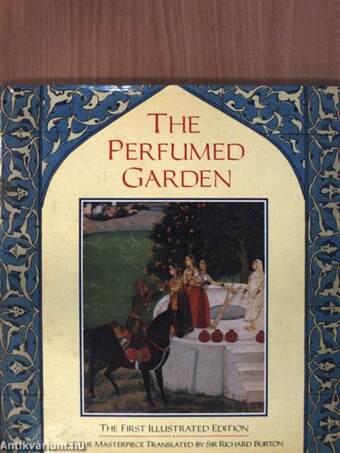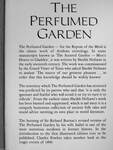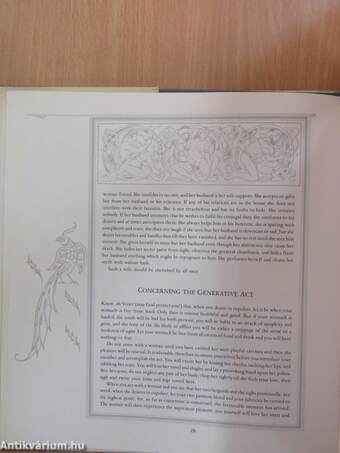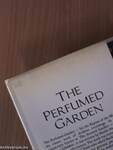1.061.471
kiadvánnyal nyújtjuk Magyarország legnagyobb antikvár könyv-kínálatát

VISSZA
A TETEJÉRE
JAVASLATOKÉszre-
vételek
The Perfumed Garden
| Kiadó: | Hamlyn Publishing Group Limited |
|---|---|
| Kiadás helye: | London |
| Kiadás éve: | |
| Kötés típusa: | Fűzött keménykötés |
| Oldalszám: | 92 oldal |
| Sorozatcím: | |
| Kötetszám: | |
| Nyelv: | Angol |
| Méret: | 25 cm x 24 cm |
| ISBN: | 0-600-564-231 |
| Megjegyzés: | Színes és fekete-fehér illusztrációkkal. |
naponta értesítjük a beérkező friss
kiadványokról
naponta értesítjük a beérkező friss
kiadványokról
Fülszöveg
The
perfumed
Garden
The Perfumed Garden — for the Repose of the Mind is
the classic work of Arabian erotology. In some
manuscripts known as The Scented Garden — Men's
Hearts to Gladden', it was written by Sheikh Nefzawi in
the early sixteenth century. The work was commissioned
by the Grand Vizier of Tunis who asked Sheikh Nefzawi
to analyse The source of our greatest pleasure in
order that this knowledge should be widely known.
The notoriety which The Perfumed Garden has attracted
was predicted by its patron who said that 'it is only the
ignorant and fearful who will avoid it or try to turn it to
ridicule'. From the earliest times Sheikh Nefzawi's work
has been banned and suppressed, which is sad since it is a
uniquely humorous collection of ancient folk tales and
sound advice meriting its own place in world literature.
The burning of Sir Richard Burton's revised version of
The Perfumed Garden by his wife Isabel is one of the
most notorious incidents in... Tovább
Fülszöveg
The
perfumed
Garden
The Perfumed Garden — for the Repose of the Mind is
the classic work of Arabian erotology. In some
manuscripts known as The Scented Garden — Men's
Hearts to Gladden', it was written by Sheikh Nefzawi in
the early sixteenth century. The work was commissioned
by the Grand Vizier of Tunis who asked Sheikh Nefzawi
to analyse The source of our greatest pleasure in
order that this knowledge should be widely known.
The notoriety which The Perfumed Garden has attracted
was predicted by its patron who said that 'it is only the
ignorant and fearful who will avoid it or try to turn it to
ridicule'. From the earliest times Sheikh Nefzawi's work
has been banned and suppressed, which is sad since it is a
uniquely humorous collection of ancient folk tales and
sound advice meriting its own place in world literature.
The burning of Sir Richard Burton's revised version of
The Perfumed Garden by his wife Isabel is one of the
most notorious incidents in literary history. In the
introduction to the first illustrated edition ever to be
published, Charles Fowkes takes another look at the
tragic events of 1890. Vissza
Témakörök
- Idegennyelv > Idegennyelvű könyvek > Angol > Művelődéstörténet
- Művelődéstörténet > Kultúra > Története
- Idegennyelv > Idegennyelvű könyvek > Angol > Szex, szerelem
- Szex, szerelem > Kultúrtörténet > Keleti kultúrkör
- Szex, szerelem > Idegennyelvű
- Szex, szerelem > Szexuális felvilágosítás > Egyéb
- Erotika > Egyéb
- Erotika > Kultúrtörténet > Keleti kultúrkör
- Idegennyelv > Idegennyelvű könyvek > Angol
























